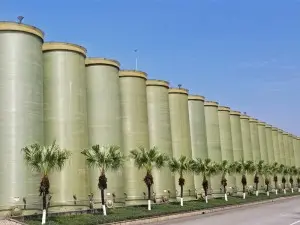
-
 Afrikaans
Afrikaans -
 Albanian
Albanian -
 Amharic
Amharic -
 Arabic
Arabic -
 Armenian
Armenian -
 Azerbaijani
Azerbaijani -
 Basque
Basque -
 Belarusian
Belarusian -
 Bengali
Bengali -
 Bosnian
Bosnian -
 Bulgarian
Bulgarian -
 Catalan
Catalan -
 Cebuano
Cebuano -
 China
China -
 China (Taiwan)
China (Taiwan) -
 Corsican
Corsican -
 Croatian
Croatian -
 Czech
Czech -
 Danish
Danish -
 Dutch
Dutch -
 English
English -
 Esperanto
Esperanto -
 Estonian
Estonian -
 Finnish
Finnish -
 French
French -
 Frisian
Frisian -
 Galician
Galician -
 Georgian
Georgian -
 German
German -
 Greek
Greek -
 Gujarati
Gujarati -
 Haitian Creole
Haitian Creole -
 hausa
hausa -
 hawaiian
hawaiian -
 Hebrew
Hebrew -
 Hindi
Hindi -
 Miao
Miao -
 Hungarian
Hungarian -
 Icelandic
Icelandic -
 igbo
igbo -
 Indonesian
Indonesian -
 irish
irish -
 Italian
Italian -
 Japanese
Japanese -
 Javanese
Javanese -
 Kannada
Kannada -
 kazakh
kazakh -
 Khmer
Khmer -
 Rwandese
Rwandese -
 Korean
Korean -
 Kurdish
Kurdish -
 Kyrgyz
Kyrgyz -
 Lao
Lao -
 Latin
Latin -
 Latvian
Latvian -
 Lithuanian
Lithuanian -
 Luxembourgish
Luxembourgish -
 Macedonian
Macedonian -
 Malgashi
Malgashi -
 Malay
Malay -
 Malayalam
Malayalam -
 Maltese
Maltese -
 Maori
Maori -
 Marathi
Marathi -
 Mongolian
Mongolian -
 Myanmar
Myanmar -
 Nepali
Nepali -
 Norwegian
Norwegian -
 Norwegian
Norwegian -
 Occitan
Occitan -
 Pashto
Pashto -
 Persian
Persian -
 Polish
Polish -
 Portuguese
Portuguese -
 Punjabi
Punjabi -
 Romanian
Romanian -
 Russian
Russian -
 Samoan
Samoan -
 Scottish Gaelic
Scottish Gaelic -
 Serbian
Serbian -
 Sesotho
Sesotho -
 Shona
Shona -
 Sindhi
Sindhi -
 Sinhala
Sinhala -
 Slovak
Slovak -
 Slovenian
Slovenian -
 Somali
Somali -
 Spanish
Spanish -
 Sundanese
Sundanese -
 Swahili
Swahili -
 Swedish
Swedish -
 Tagalog
Tagalog -
 Tajik
Tajik -
 Tamil
Tamil -
 Tatar
Tatar -
 Telugu
Telugu -
 Thai
Thai -
 Turkish
Turkish -
 Turkmen
Turkmen -
 Ukrainian
Ukrainian -
 Urdu
Urdu -
 Uighur
Uighur -
 Uzbek
Uzbek -
 Vietnamese
Vietnamese -
 Welsh
Welsh -
 Bantu
Bantu -
 Yiddish
Yiddish -
 Yoruba
Yoruba -
 Zulu
Zulu
cpvc frp pipe
The Advantages of CPVC FRP Pipes A Comprehensive Overview
In the realm of industrial piping systems, the selection of materials plays a critical role in determining the efficiency, durability, and cost-effectiveness of operations. Among the various materials available, CPVC (Chlorinated Polyvinyl Chloride) FRP (Fiber Reinforced Plastic) pipes have garnered significant attention due to their unique properties and advantages. This article highlights the key benefits of CPVC FRP pipes, making them an excellent choice for a variety of applications.
Corrosion Resistance
One of the most notable advantages of CPVC FRP pipes is their exceptional resistance to corrosion. Traditional metal pipes are susceptible to rust and degradation when exposed to corrosive substances, which can lead to costly repairs and replacements. In contrast, CPVC FRP pipes are engineered to withstand harsh chemicals and environments without succumbing to corrosion. This characteristic is particularly valuable in industries such as chemical processing, wastewater management, and oil and gas, where materials are often exposed to aggressive agents.
Temperature Tolerance
CPVC FRP pipes exhibit impressive thermal stability, allowing them to maintain performance under varying temperature conditions. With a working temperature range significantly higher than that of standard PVC pipes, CPVC pipes can handle hot water applications and industrial processes without compromising structural integrity. This thermal resilience makes them suitable for a wide array of applications, from residential hot water systems to industrial heating and cooling systems.
Lightweight Yet Strong
Another major advantage of CPVC FRP pipes is their lightweight nature combined with high tensile strength. Compared to traditional metal pipes, which can be cumbersome and challenging to handle, CPVC FRP pipes are significantly lighter, resulting in easier installation and reduced labor costs. Despite their lightweight design, these pipes do not sacrifice strength; they can withstand considerable pressure and mechanical stress, making them reliable for a range of demanding applications.
cpvc frp pipe

Cost-Effectiveness
While the initial investment in CPVC FRP piping systems may be higher than that of conventional materials, the long-term savings they provide can be substantial. The durability and corrosion resistance of CPVC FRP pipes lead to lower maintenance and replacement costs. Additionally, their lightweight nature allows for more straightforward installation, reducing labor expenses. Over the lifespan of the piping system, these factors can result in considerable cost savings for industries.
Environmental Sustainability
As industries increasingly prioritize environmentally friendly practices, CPVC FRP pipes offer a sustainable alternative to traditional materials. The manufacturing process of CPVC is less energy-intensive compared to metals, and the pipes themselves are recyclable. Furthermore, their longevity and resistance to environmental degradation contribute to reduced waste and resource consumption over time.
Versatile Applications
The versatility of CPVC FRP pipes cannot be overstated. They are widely used in various sectors, including construction, agriculture, chemical processing, and pharmaceuticals. Whether for transporting water, chemicals, or gases, CPVC FRP piping systems can be tailored to meet specific needs, ensuring efficiency and safety across diverse applications.
Conclusion
In conclusion, CPVC FRP pipes represent a forward-thinking solution for modern piping needs. With their remarkable corrosion resistance, temperature tolerance, lightweight properties, cost-effectiveness, environmental sustainability, and versatility, these pipes are well-suited for a variety of industries. Companies looking to enhance their operational efficiency and reduce long-term costs should consider adopting CPVC FRP pipes as a viable alternative to traditional piping materials. As technology and manufacturing methods continue to advance, the benefits of CPVC FRP pipes are likely to become even more pronounced, solidifying their position as a top choice in the field of piping systems.









